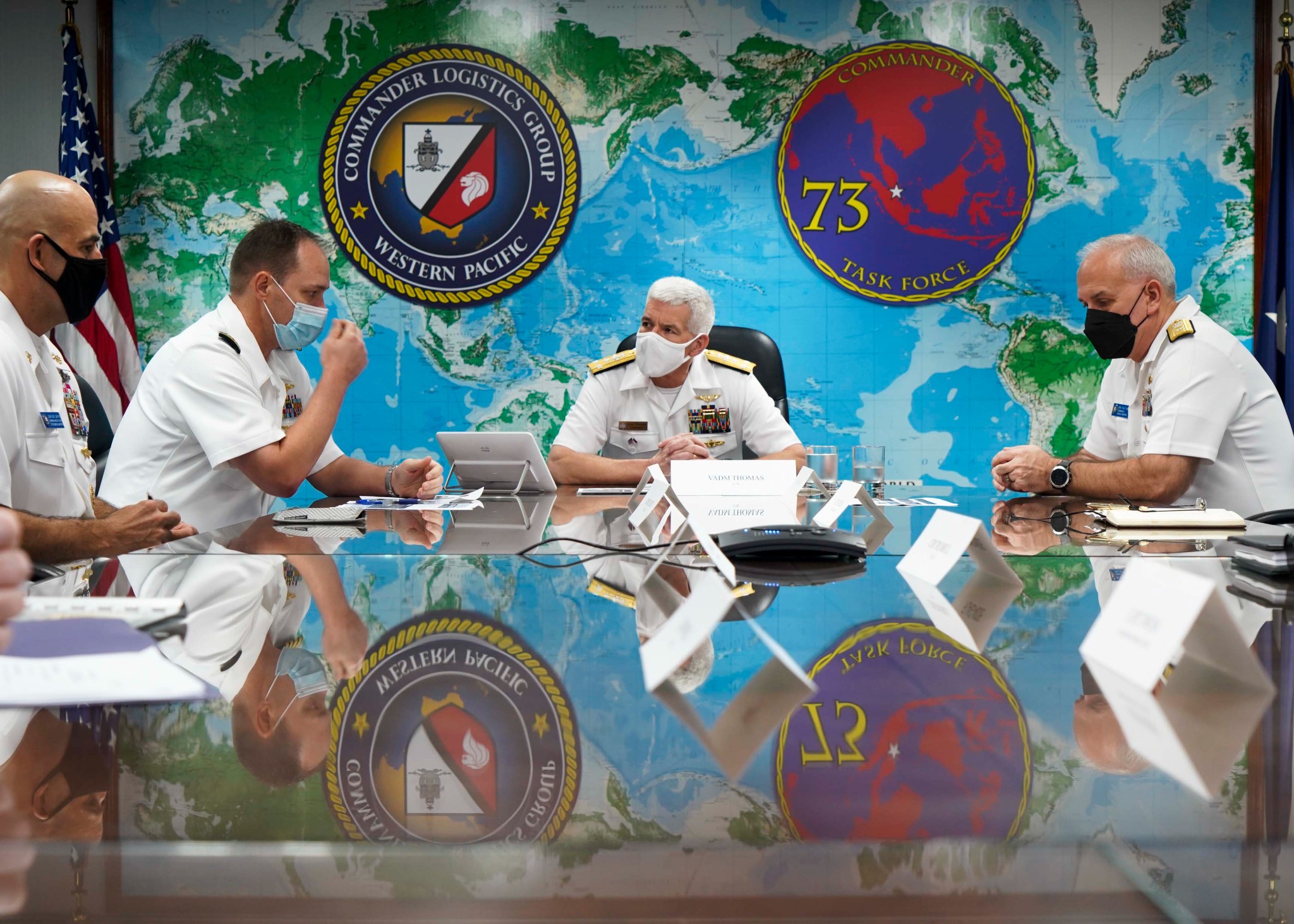 Officers from the U.S. Navy Logistics Group Western Pacific meet in Singapore. U.S. Navy photo by Mass Communication Specialist 2nd Class Heath Zeigler/Released
Officers from the U.S. Navy Logistics Group Western Pacific meet in Singapore. U.S. Navy photo by Mass Communication Specialist 2nd Class Heath Zeigler/Released
Three Trends that Could Turn the Tide Between the U.S. and China
A whirlwind of current events this year has left many Americans concerned about the U.S. approach to strategic competition with China. Amidst increasing tariffs and tensions in the Indo-Pacific, navigating a carrot-and-stick approach of industrial controls and diplomatic engagement has proven challenging for Washington. This week, however, marked significant progress on three foreign policy goals with critical implications for U.S.-China relations. While uncertainty will remain the trend for the foreseeable future, these emerging developments present opportunities to turn the tide toward the U.S. position.
1. Strengthening Intracontinental Relationships
On Tuesday, the Federal Reserve Bank of Dallas reported that Mexico is America’s top trading partner again, replacing China after the latter dominated throughout COVID and most of the 2010s.
Why it matters: Amidst growing tariffs between the U.S. and China and pervasive global supply chain issues, nearshoring is critical. In addition to saving money on transportation and energy costs, proximity to manufacturers makes it easier for U.S. agencies to monitor supply chains, curb poor labor practices, and promote commercial democracy. Strengthening the legitimate economy could also undercut Mexico’s illicit trade ecosystem and reduce illegal immigration, improving stability on the Southern Border. As climate change becomes a national security priority for NATO, growing closer with Mexico and Canada could improve long-term allied resilience, defense planning, and disaster response.
2. Increasing U.S. Presence in the Pacific
On Thursday, the State Department announced it plans to invest at least 40 million dollars in small island nations in the Pacific to increase U.S. presence near key allies and strategically counter China. This includes constructing four new embassies in the Solomon Islands, Vanuatu, Tonga, and Kiribati with 30-40 new staff members.
Why it matters: Improving diplomatic infrastructure in the Indo-Pacific helps preserve regional security and allows better monitoring of Chinese military coercion and surveillance activities in the region. Embassy diplomats mitigate emerging conflicts, reduce miscommunication, advance U.S. national interests, and provide policymakers with timely analysis of critical geopolitical risks, including those posed by China. Amidst increased naval and air presence in the South China Sea, local diplomats can prevent unnecessary escalations and strengthen maritime security cooperation with small island nations.
3. Restoring High-level Diplomatic Communications
Yesterday, Blinken met again with Wang Yi, China’s highest-ranking diplomat, in preparation for Special Climate Envoy John Kerry’s visit to the mainland next week. Following Treasury Secretary Yellen’s discussions last week, this is the busiest month for high-level talks with Beijing since 2018. If all goes well, President Biden and Secretary Xi may summit in San Francisco later this year.
Why it matters: While high-level dialogue may not yield an immediate resolution to disputes between the U.S. and China, it can provide policymakers with critical insights into Beijing’s strategic intentions. Despite Beijing’s refusal to bend on sensitive issues like Taiwan, fentanyl, and Ukraine, discussions do not require compromise to effectively mitigate conflict. Ongoing diplomacy—on both the public stage and the sidelines—can reveal new avenues for cooperation and competition that air and naval operations cannot.
A Path Towards Progress
As demonstrated by the rapid escalation of air and naval near misses in the South China Sea this summer, military buildup without proportional investment in diplomacy puts pressure on an already unstable relationship, jeopardizing the security of states the U.S. is trying to protect. In contrast, expanding relationships with North American and Pacific partners creates avenues for increased cooperation and pays dividends in the long run. While policymakers develop a comprehensive strategy for preventing Chinese encroachment, these trends are worth watching.





